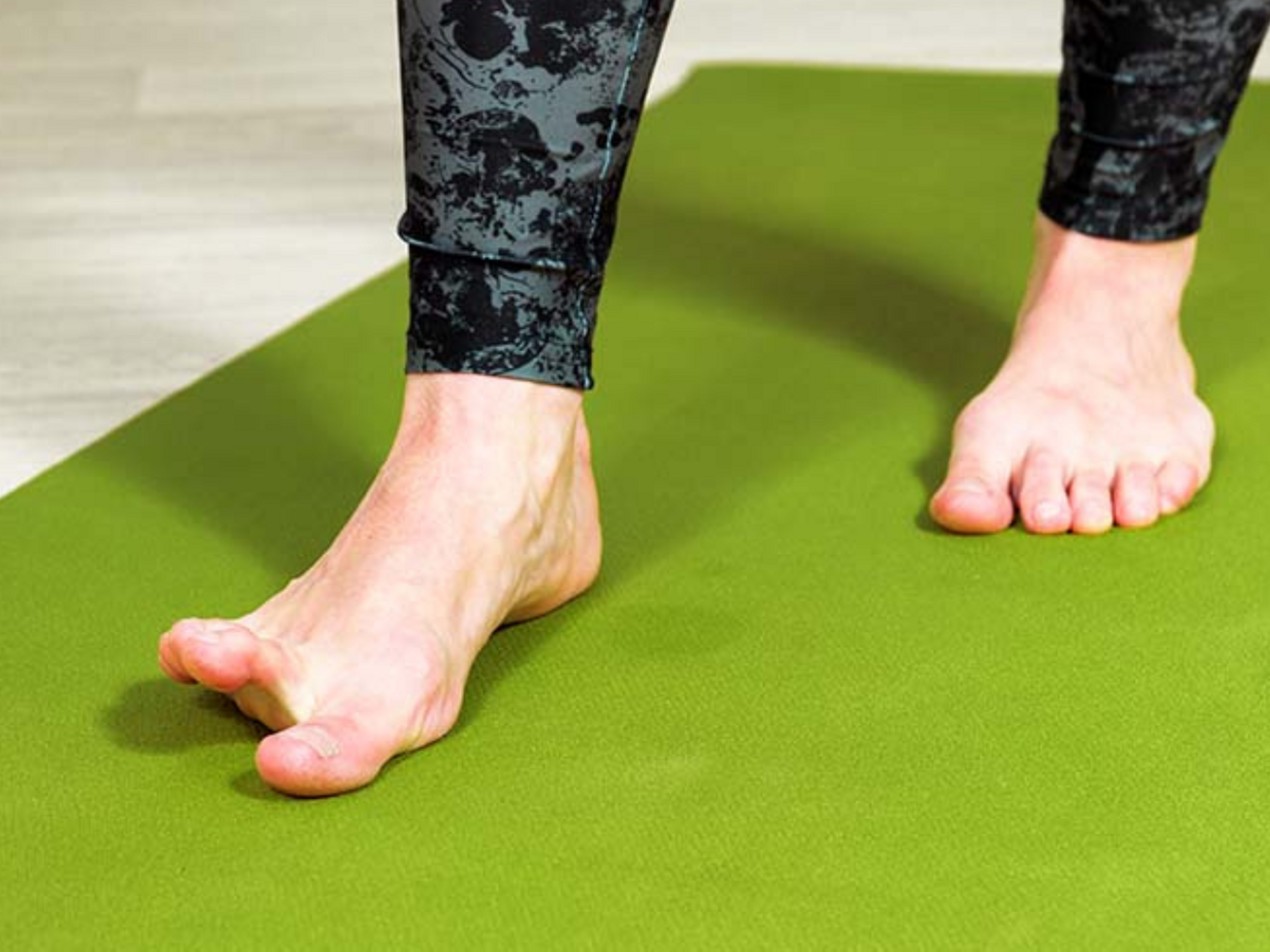Plantar fasciitis - Your questions answered
This article aims to answer a few of the most common questions about plantar fasciitis. It will help you understand why it’s a condition you can’t ignore, who can help you treat it, the recovery timelines, and more.
So, let’s get started!
1. Can plantar fasciitis be cured?
Yes, plantar fasciitis can heal completely. It is not a permanent or chronic condition and typically responds well to conservative treatment.
It’s essential to note that there is no one-size-fits-all solution for plantar fasciitis. Many factors impact your condition and recovery.
Also, it’s not a straight-line recovery. You can expect good days and bad days. But, if you understand the condition and your body well, you will know when to rest and challenge yourself during your recovery. Which helps you prevent and manage flare-ups smoothly.
Learn how to deal with flare-ups, use the correct combinations of treatments, and stick to your treatment plan. In this way, your plantar fasciitis will likely heal over time.
2. What happens if plantar fasciitis is untreated?
It usually becomes progressively more painful and may increase your risk of tearing your plantar fascia. It can also cause pain in other areas further away from your foot.
How can it cause plantar fascia tears (ruptures)?
When you have plantar fasciitis, your plantar fascia loses some of its strength. The longer your injury continues, the worse it becomes, and the more strength your plantar fascia loses.
Continuing to push through pain or doing high-impact activities regardless of your injury can cause your plantar fascia to eventually rupture. High-impact activities include running, jumping, or even walking in unsupportive shoes for long periods.
Fortunately, you can restore the strength in your plantar fascia by following a graded strength training program, like the one included in the Exakt Health app.
Apart from potentially causing your plantar fascia to rupture, untreated plantar fasciitis may also lead to injuries in other body parts.
Untreated plantar fasciitis can lead to...
Pain in new places
The plantar fascia works together with the muscles, tendons, and ligaments in your lower limbs to stabilize your foot and lower leg while moving on your feet.
If one link in this chain is disturbed and weakened, it causes a domino effect. And the other parts need to work harder to compensate. Which can lead to them becoming injured as well.
In addition to the domino effect causing other muscles to strain, your gait (the way you walk) changes when you have plantar fasciitis. This adds to the strain.
So, with untreated plantar fasciitis, you can develop issues like Achilles tendinopathy or calf strain. Or injuries further away from your foot like knee meniscus tears, hamstring strains or hip bursitis.
If you experience plantar fasciitis symptoms, you need to act early and never ignore it. If you feel your symptoms are worsening, it is best to modify your activities, adjust your treatment plan, or do both.
3. How do you know if your plantar fasciitis is getting worse?
Signs of your plantar fasciitis worsening are:
- The pain doesn’t fade during the day or when you’re moving around.
- The pain is more intense than when it first started.
- You notice pain in new places.
The sooner you start your treatment, the sooner you can heal your plantar fascia and ensure the shortest possible recovery time for your condition.
4. How long for plantar fasciitis to heal?
Unfortunately, there is no quick fix for this condition. However, you can significantly shorten or lengthen your recovery based on what you do when you notice plantar fasciitis symptoms.
If you ignore your heel pain and carry on with your usual activities, it can take 12 months or longer to resolve.
But, if you react quickly and start with the right treatments at the right time (within a few weeks of your first symptoms), it is possible to fully recover within 8 to 12 weeks.
5. What can make plantar fasciitis recovery take longer?
Of course, the timelines mentioned above are only an estimate. Everyone’s situation is unique.
Factors that can prolong your recovery include:
- The severity of your plantar fasciitis
- Whether you’re recovering from other injuries or have conditions that can complicate or slow down your plantar fasciitis recovery. For example, Achilles tendinopathy or inflammatory conditions like ankylosing spondylosis
- How well you comply with your plantar fasciitis treatment plan
- The type of treatments you use in your treatment plan
Your age (the older you are, the longer you take to heal in general) and health history
6. How to heal plantar fasciitis quickly
You can do two essential things to help yourself fully recover in the shortest possible time.
Starting early with an effective plantar fasciitis treatment plan
The best treatment plan to follow is one that:
- Allows your plantar fascia pain to settle with relative rest – cutting out, reducing, or adapting activities that aggravate your pain
- Includes all the key evidence-based plantar fasciitis treatments (strengthening and stretching exercises, load management, taping, orthotics, supportive shoes)
- Incorporates exercises for your foot and other body areas further away from it, like your core, hip, and leg muscles
- Matches the rehab stage to your phase of healing
- Is progressive (the intensity and frequency of your exercises gradually increase as your plantar fasciitis improves)
- Teaches you what you need to know about the condition, how to recover and prevent it from coming back
- Helps keep you motivated and on track with your recovery
The Exakt Health app does all the above. It aims to help you recover from plantar fasciitis quickly and effortlessly.
Being patient and staying consistent
Plantar fasciitis is a condition that takes time to heal. So, you will need to be patient and not expect overnight results. If you try to do too much too soon, you can worsen your condition.
Along with being patient, you need to stay consistent.
It can be tempting to stray from your plantar fasciitis treatment plan when you start feeling better. But, if you do, there’s a good chance your plantar fasciitis will come back. So, it’s vital to stick with your treatment plan until you are fully recovered.
The plantar fasciitis program in the Exakt Health app is based on the latest evidence, progressive, and tailored to your individual needs.
7. When do you need to go to the doctor for plantar fasciitis?
If you suspect you have plantar fasciitis, you should see a doctor:
- As soon as your symptoms start, or if you’re unsure whether it is plantar fasciitis or not. Your doctor can give you a correct diagnosis and proper treatment advice. Also, other conditions can feel like plantar fasciitis but require different treatments. So, your doctor can assess and rule these out.
- If your symptoms haven’t improved after trying conservative plantar fasciitis treatments for at least 6 months.
- If your heel pain is accompanied by numbness, redness, or warmth in your foot or calf. This may indicate a more severe condition like a blood clot (DVT).
8. Who treats plantar fasciitis?
Your family doctor, physical therapist, or podiatrist can diagnose plantar fasciitis and start you on a treatment program.
They may recommend treatments you can do at home, such as icing, stretching, and taking anti-inflammatory medications at first. But, depending on the severity of your plantar fasciitis and the length of time you’ve had symptoms, they may refer you to other specialists.
These include:
- Physical therapists
- Podiatrists
- Orthopedic surgeons
Physical Therapists
Physical therapists are health care professionals who specialize in movement and exercise and injury rehabilitation.
They can assess and diagnose plantar fasciitis based on your history and symptoms. Once they understand your case of plantar fasciitis better, they can create a plantar fasciitis treatment program tailored just for you.
They will tell you which exercises to do precisely and help you find the right balance between activity and rest.
Physical therapists will also be able to advise you on other treatments that you can try at home, and that may work best for your situation.
The Exakt Health app includes a plantar fasciitis rehab plan that helps you select and progress through the right exercises. Based on your symptoms and level of injury.
Podiatrists
Podiatrists are health care professionals specialized in treating foot and ankle problems. They can help diagnose plantar fasciitis with special tests and scans. And once they know more about the severity of your condition, they can prescribe appropriate plantar fasciitis treatments.
They will usually start with the least invasive options, like shoe inserts, custom orthotics, ankle braces, night splints, and exercises.
If these don’t help, they may move to more invasive treatments such as steroid injections, shockwave treatment (also offered by Physical therapists and doctors), or ultrasonic tissue repair.
When none of these methods relieve your pain, your podiatrist will likely refer you to an orthopedic surgeon for further assessment and treatment.
Orthopedic Surgeons
Orthopedic surgeons are medical doctors who specialize in surgery for bones, joints, and muscles. As a result, they may offer treatments that physical therapists and podiatrists can’t.
These include:
- Radiofrequency nerve ablation and nerve blocks
Surgeons rarely consider surgery for plantar fasciitis. But when they do, it’s only once all other plantar fasciitis treatments have failed.
Another thing to know is most surgeons advise surgery in conjunction with a thorough post-operative rehabilitation program. This is to help ensure a better long-term outcome and a successful recovery. So, unfortunately, it isn’t a quick fix.
If you would like to learn more, our article on plantar fasciitis surgery gives good insight into the most common types and what to expect. But, most importantly, it helps you know whether surgery really is the best option for you.
9. Do you need a doctor to treat plantar fasciitis?
No. In most instances, following a structured exercise plan (which you can get from a physical therapist) combined with the correct footwear or insoles is all you need to recover from plantar fasciitis.
However, it may be worth seeing a specialist if your condition is severe or your symptoms don’t improve despite following the correct treatment for at least 6 months.
The Exakt Health app’s plantar fasciitis rehab plan is specially developed by physical therapists to help guide and teach you how to manage plantar fasciitis on your own.
Conclusion
We’ve answered some of the most frequently asked questions about plantar fasciitis. Hopefully, this has helped you understand more about its treatment, why it’s essential, and what to do next.
If you would like to learn more about plantar fasciitis, head to our plantar fasciitis injury resources page. Also, as part of the app’s plantar fasciitis rehab plan, you get reading activities to build your knowledge about the condition. So, make sure to check those out too!
Good luck on your plantar fasciitis recovery journey!









